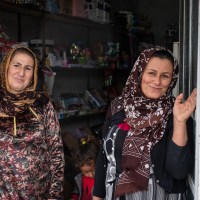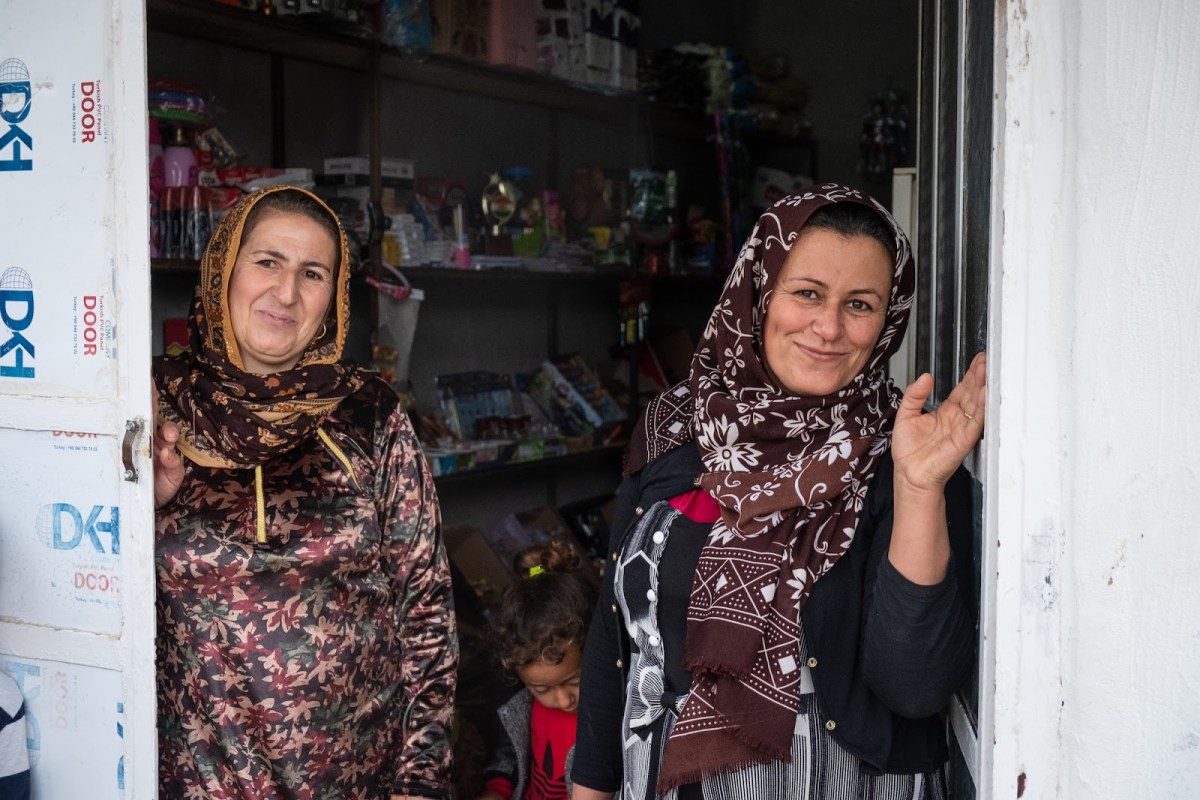You always see them together, some combination of the four sisters-in-law who fled the war in Syria with their husbands and mother-in-law. Two of the four, Zaroka and Zanoba (pictured above), live in adjoining sites in the Iraqi refugee camp they now call home. Their narrow properties inside the camp, which lay back-to-back, were built without a dividing wall, so they’re able to do life together more easily. They cook together and wrangle children together. When we visit one woman, it doesn’t take long for the other three to appear, with tea and stories, and always a wide welcome.
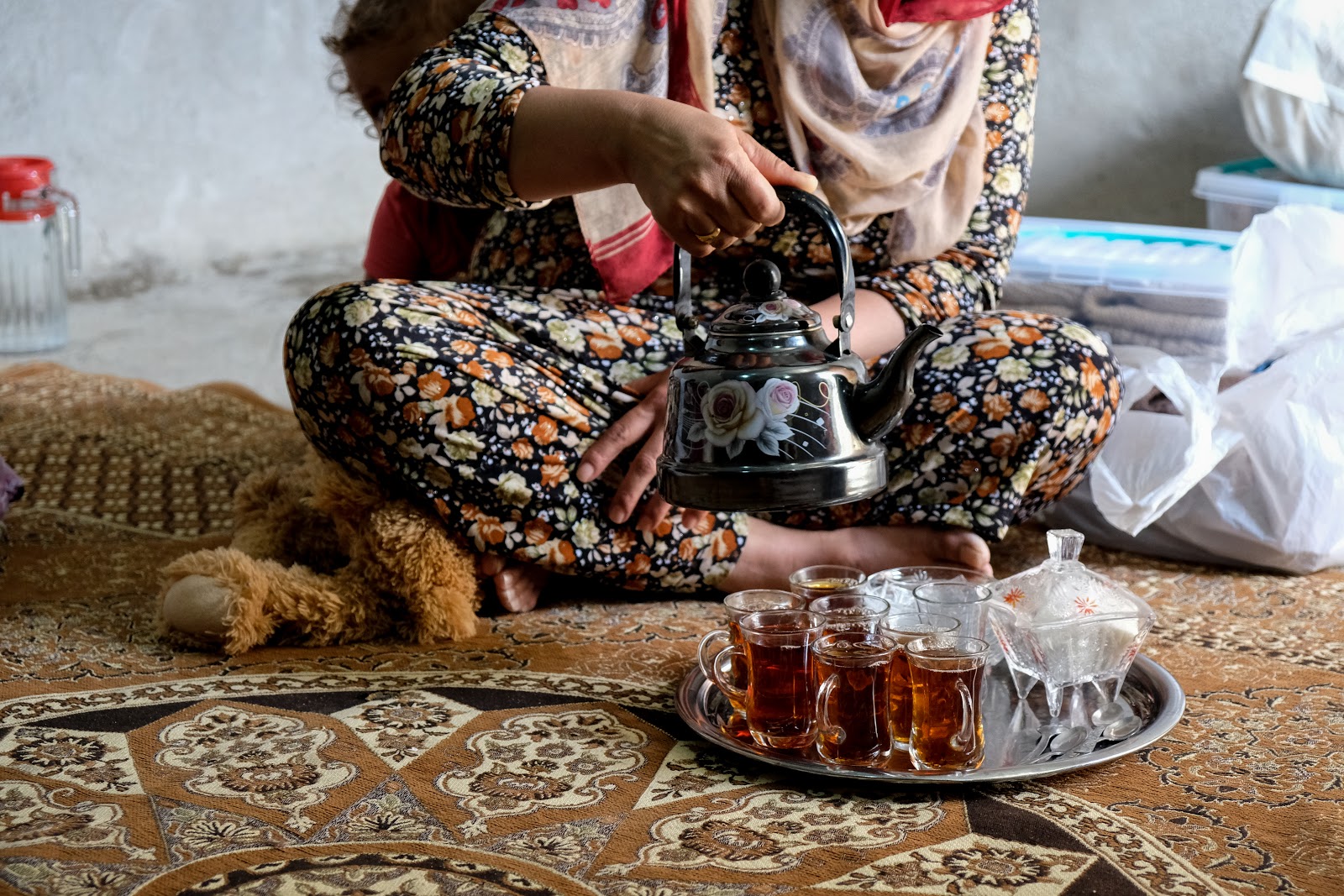
The sisters-in-law knit together too. They are business women. Sewing and making hand-knit and crocheted items were their first businesses in the camp. When we approached the women about buying sweet baby sweaters for our online shop, they negotiated the price they needed for their work and delivery dates. They had all the tiny garments ready on time, and we purchased finished sweaters ready to be shipped around the world to folks who want a tangible connection to Syrian and Iraqi women rebuilding their lives.
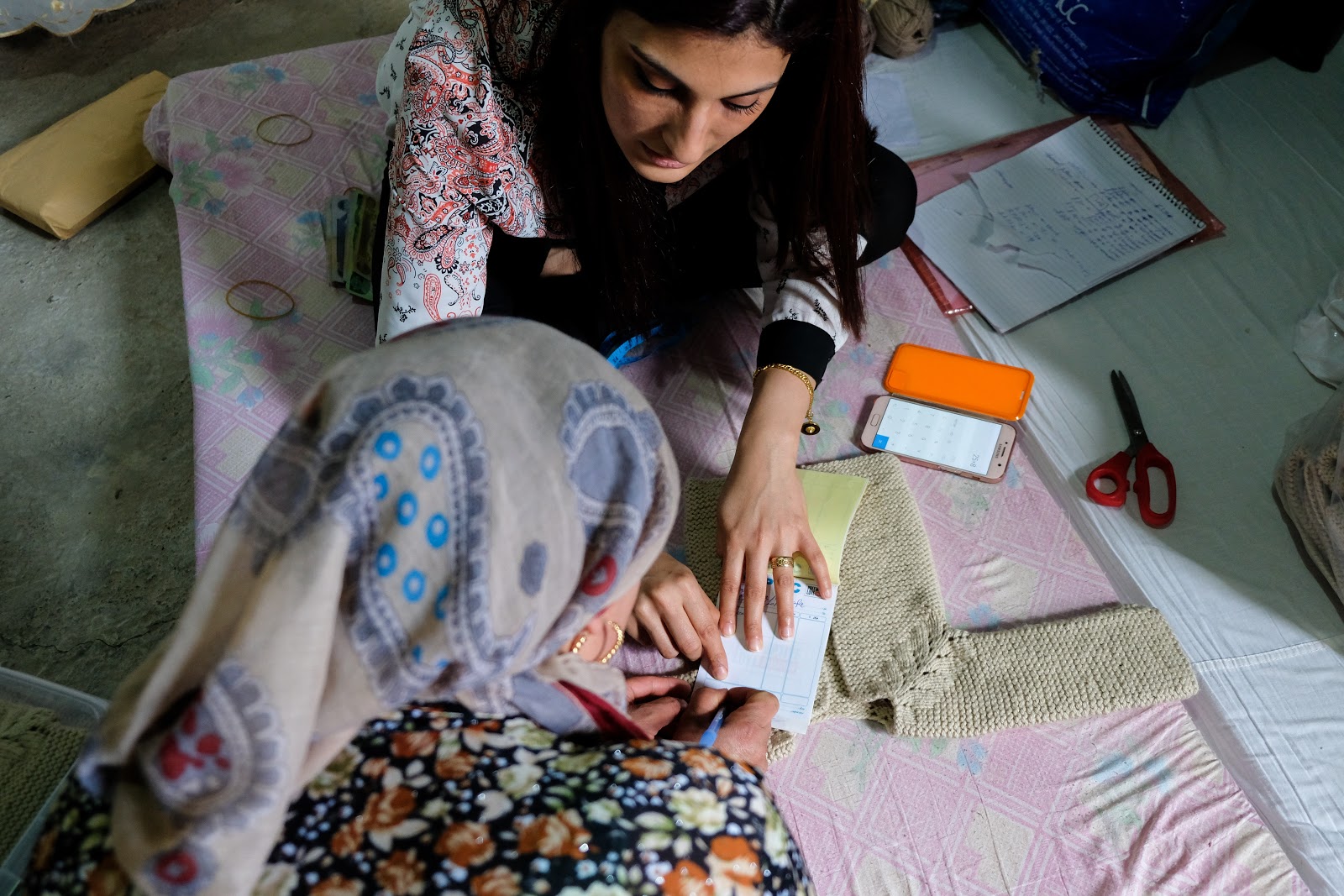
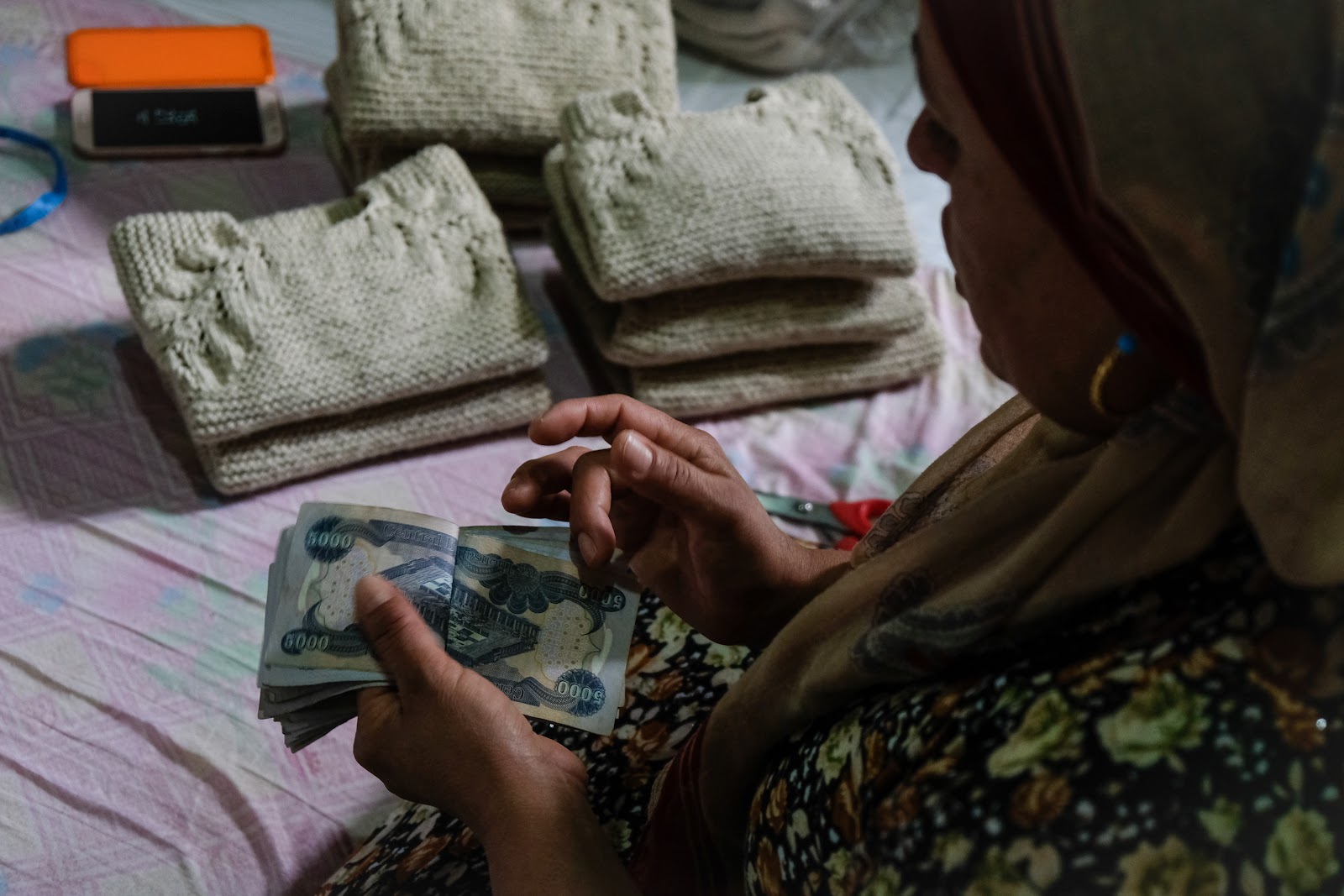
Knitting is a good business for women. But it’s seasonal work. Neither the Syrian families in the camp nor local Iraqis are particularly interested in buying knit goods in the sweltering summers.
Zaroka and Zanoba decided they needed year-round, stable businesses to best support their families’ needs.
It took a series of conversations over two months until the women finally landed on the idea of opening a little grocery shop. The women had plenty of ideas about businesses—there was no shortage of ideas. But it took a lot of coaching with our team to help them investigate what was needed in their neighborhood of the camp—to figure out what kind of business would work for their families and be desired by their neighbors.
Both women can sew, but there isn’t much need for seamstress businesses in the camp these days. Both women can cook, but prepared meals isn’t something low-income families will pay for. But pantry-stable ingredients used for making meals—there was no shop in their neighbohood carrying basic grocery supplies. That would work!
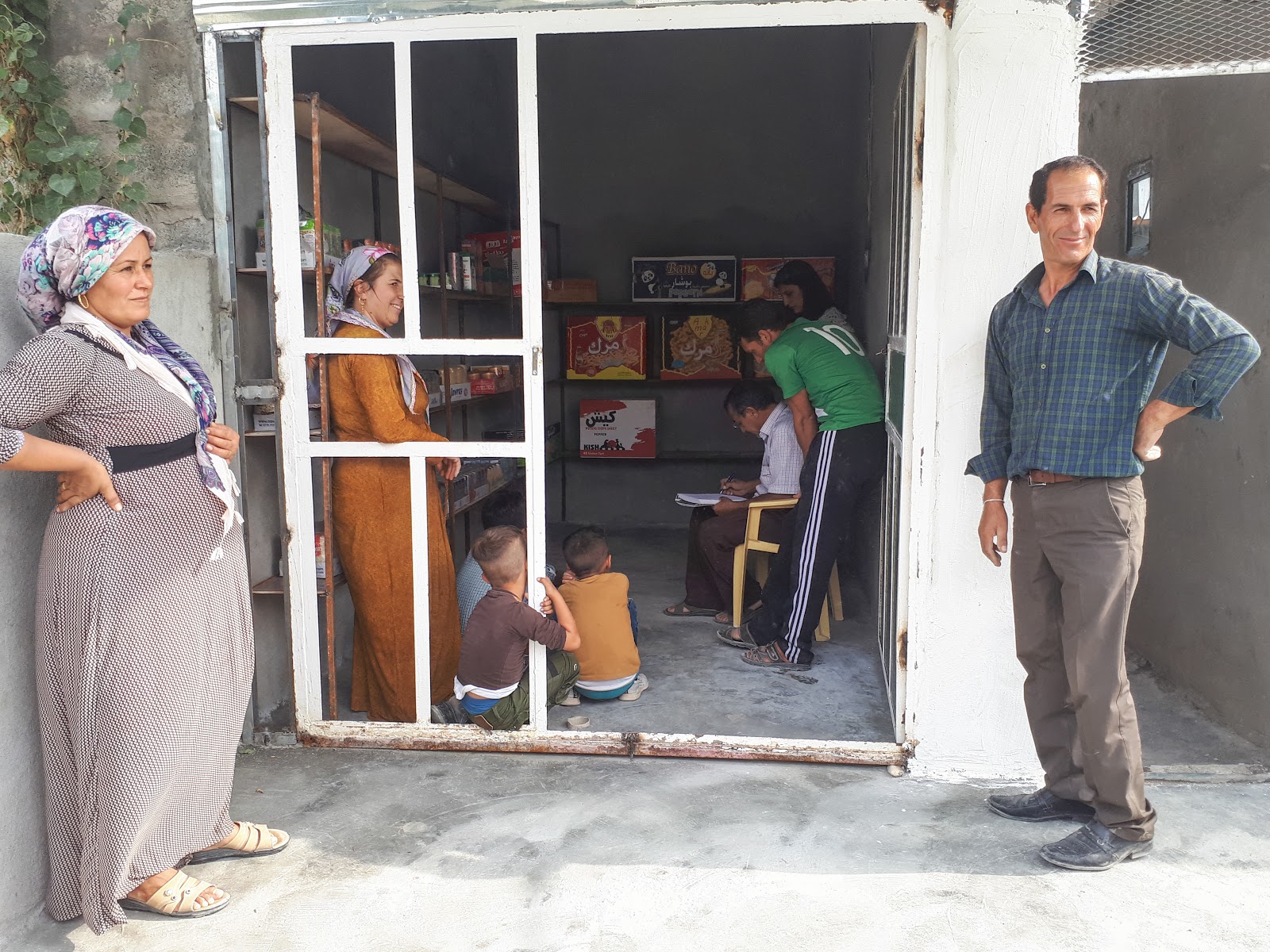
Zaroka and Zanoba saved all of their earnings from knitting baby sweaters, and pooled it toward opening a shop. From their small lot in the camp, they carved out space to build a single-room store facing onto the street, with a sturdy roof and windowed front. It is a basic space, but it’s clean, dry, and handy for all who live nearby.
We contributed funding in the form of a small-business grant, which the women used to buy the initial stock they offered for sale in the shop. Together, these three sources of funding allowed the women to open a much better shop than either woman could have started independently. They even had enough resources to buy a basic refrigerator, to offer breakfast items like fresh yogurt and cheese.
The shop has been open for just one month, but already so much has changed for Zaroka and Zanoba.
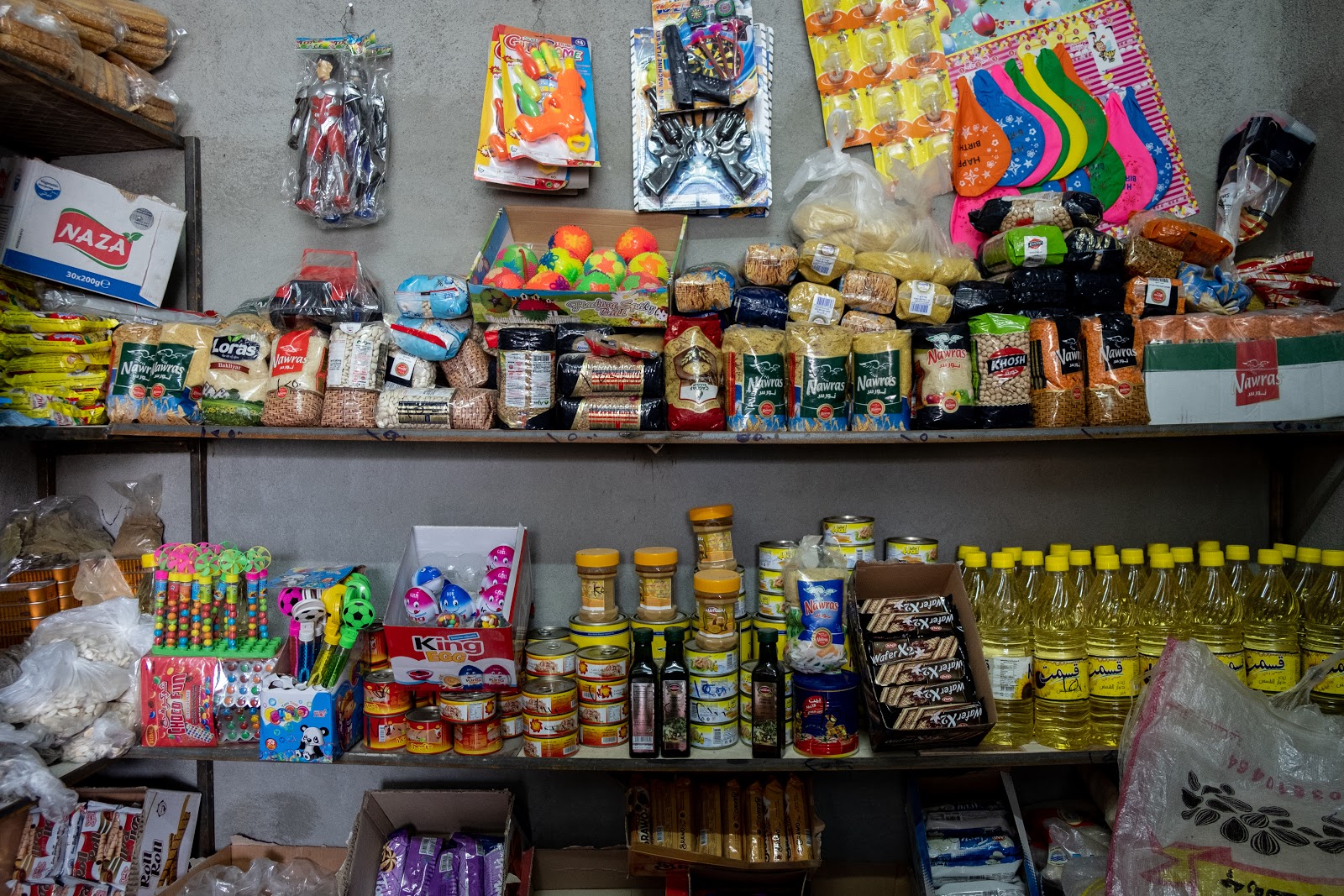
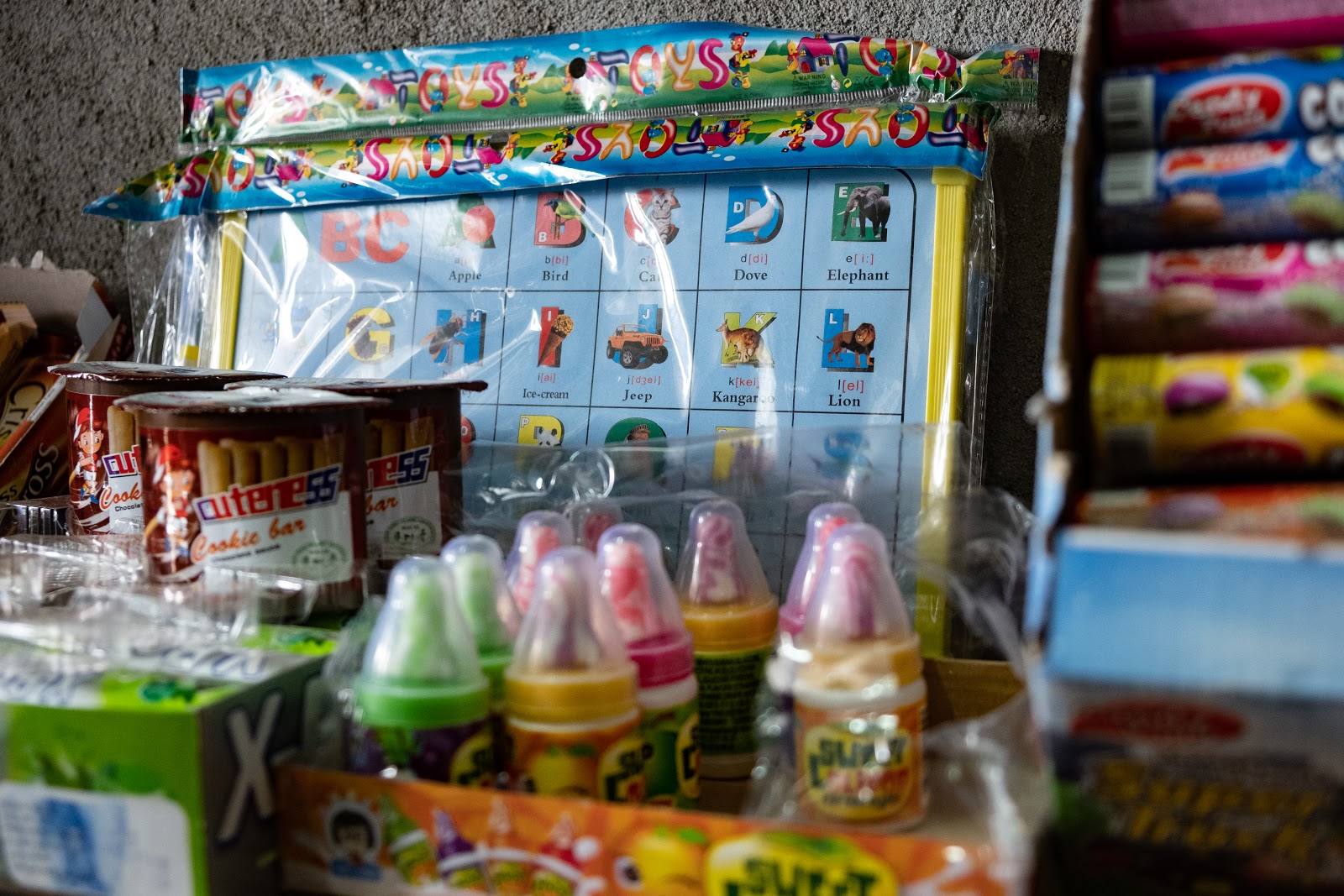
The shop has changed the women’s outlook. In the afternoons, after laundry is washed and hung, the housework is done and the lunch dishes washed, the women of the neighborhood gather at the Zaroka and Zanoba’s to visit and share a chat over coffee. Their kids buy snacks from the shop. Before they return home, the neighbor women will pick up items they need for making dinner. The women are now knit into a community like they haven’t been since they fled Syria.
 The shop has given Zaroka and Zanoba’s elderly mother-in-law purpose. She used to rest in their home in the camp all day long. Without her home in Syria to look after, and her life-long friendships to nurture, she was a little lost. Now she sits outside the shop to welcome customers as they come. She calls for her daughters-in-law to handle questions and purchases. She feels useful now—in ways she hasn’t since she fled home.
The shop has given Zaroka and Zanoba’s elderly mother-in-law purpose. She used to rest in their home in the camp all day long. Without her home in Syria to look after, and her life-long friendships to nurture, she was a little lost. Now she sits outside the shop to welcome customers as they come. She calls for her daughters-in-law to handle questions and purchases. She feels useful now—in ways she hasn’t since she fled home.
And the shop is already giving Zaroka and Zanoba a steady income. In the month they’ve been open, the women have replenished the stock in their shop several times over. They’ve expanded the variety of products they offer, including snacks, toys, and school supplies for children. Their neighbors ask for specific products, which allows the women to tailor their wholesale purchases to products they know will sell.
This is what it looks like when you help to start small businesses in Iraq and Syria. Many refugee families need more than one business to get by. Many businesses are seasonal, including that of making hand-knits, and day labor construction jobs that provide some income for men.
When we help to start a small business, we stick around. We continue to coach those business owners who want additional help and are sometimes able to coach them into a larger, more sustainable businesses when they’re ready.
Investment into Zaroka and Zanoba’s shop provided a stable, year-long business to support two families. It created a community meeting spot for women, and a sense of purpose for their mother-in-law. And it provided a needed shop in their neighborhood that makes it feel more like home for their neighbors, and not like a refugee camp.
Invest in small business grants and provide the fuel for change in individuals, families, and neighborhoods.

